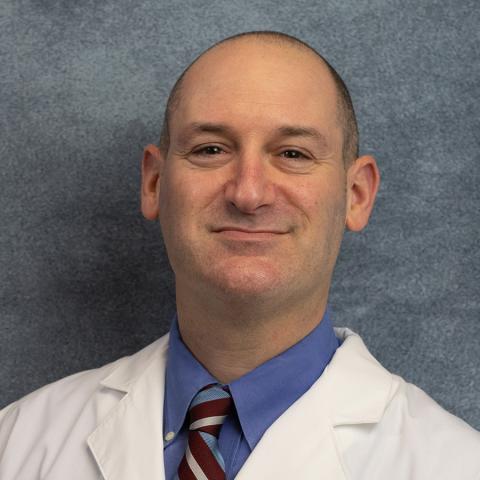Prostate Cancer: 5 Common Myths

"Many men don't think about prostate cancer, so those who are diagnosed suddenly find themselves in a scary, unfamiliar place," says Dr. Brian Sperling, a urologist with Hunterdon Urological Associates. "Prostate cancer can be confusing as there are many treatment options, including just observation." Dr. Sperling dispels five common myths about prostate cancer.
Myth 1: “Prostate cancer is incurable.”
Fact: Many prostate cancers are curable when caught early, and some may not need to be treated. Many doctors simply monitor a low-grade prostate cancer that is neither spreading nor causing symptoms, sparing patients from unnecessary treatment for a harmless cancer.
For prostate cancers that require treatment, the success rates have been high when cancer is localized. Nearly all men with cancer that is confined in or around the prostate are still alive five years after diagnosis, the American Cancer Society reports.
Surgery and radiation are used to treat cancers confined to the prostate, and several medications are available to treat disease that has progressed beyond the prostate. Another emerging treatment, high-intensity focused ultrasound (HIFU), uses sound waves to create heat that destroys cancerous prostate cells. HIFU has shown effectiveness in cancers confined to the prostate.
Myth 2: “All men should undergo prostate cancer screening.”
Fact: While prostate cancer screening can benefit most men, the decision to get screened is an individual one, Dr. Sperling says.
Prostate-specific antigen (PSA), a protein secreted by both cancerous and non-cancerous prostate tissue, could indicate the existence of prostate cancer. Blood testing for PSA can detect non-aggressive or early-stage prostate cancer, but in some cases, it could result in a “false positive” that can cause undue stress for the patient, experts say. “It is important to discuss screening with your clinician so you can understand the results and know them when you have further workup,” Dr. Sperling says.
The American Urological Association recommends that men discuss screening with their physician based on risk, starting screening around age 45 and continuing through 75, and decreasing screening frequency if PSA levels are good. Those discussions should start sooner for men with certain risk factors, such as African-American heritage or having a father or brother with prostate cancer, current guidelines suggest.
Myth 3: “If my PSA is high, I have prostate cancer.”
If your PSA exceeds 4 nanograms per milliliter or the level is rising faster than expected, your primary care physician may refer you to a urologist, who may order magnetic resonance imaging (MRI) to investigate the PSA spike. If prostate cancer is suspected after MRI, a biopsy may be performed to confirm the diagnosis.
Myth 4: “Only older men get prostate cancer.”
Fact: About two-thirds of prostate cancers occur in men age 65 or older, the U.S. Centers for Disease Control and Prevention reports. But younger men can still get it, Dr. Sperling says.
Research published in 2019 in the Journal of Cancer suggests that global prostate cancer incidence among males ages 15 to 40 is increasing by 2% annually, and that many prostate cancers in younger males are aggressive and difficult to treat. Dr. Sperling urges younger men to see a doctor if they notice unusual symptoms, such as trouble urinating, more frequent urination, or blood in the urine or semen.
Myth 5: “I will become impotent after treatment.”
Fact: Prostate cancer treatment can cause erectile dysfunction, but treatment advances have greatly reduced this risk, Dr. Sperling says.
Nerve-sparing radical prostatectomy is less invasive than traditional prostate surgery, and it preserves some or all of the surrounding nerve structures that control erectile function. This reduces the risk of post-surgical impotence and increases the chances of regaining lost erectile function within two years after surgery, Dr. Sperling says. Additionally, some radiation therapies are less likely than others to cause impotence.
To schedule an appointment with Dr. Sperling in either Flemington or Bridgewater, call 908-237-4105 or learn more by visiting our website. Hunterdon Urological Associates is a specialty practice of Hunterdon Health.
